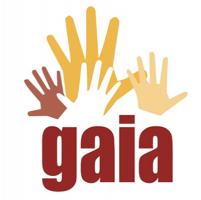
Monday, September 17, 2018 Mr. Erik Solheim United Nations Avenue, Gigiri PO Box 30552, 00100 Nairobi, Kenya cc: United Nations Environment Program Dear Erik Solheim, We were dismayed to see that the United Nations Environment has expressed its support for the controversial Reppie Waste-to-Energy Project. This misguided plan is setting the region on the wrong path: one that encourages waste instead of reducing it, and puts the surrounding community’s health at risk. We are also concerned with UN Environment’s inconclusive stance on incineration in Africa, as outlined in its latest Outlook Report. According to the UN Environment’s own report, waste incineration is especially unfeasible for low and middle income countries like those in Africa, due to its cost-prohibitive nature and unsuitable waste composition [pp.22-pp.26]. As stated in the report: “WtE technologies are…typically both a more expensive way of managing waste and a more expensive way of producing energy.” However later in another report, one of the authors–who is connected with the Danish incinerator industry– writes favorably of incineration [pp.141-148]. The U.S. and EU are already moving away from incineration, with the understanding that incineration stands in the way of a zero waste, circular economy. Why should Africa be treated differently than its Northern counterparts? It seems that in response to “waste-to-energy”’s waning popularity in the West, the incinerator industry is attempting to make a profit by exporting Europe’s old waste management approach to Africa, undermining both regions’ zero waste goals. The Reppie project might be lucrative for the multinational company behind it, Cambridge Industries Ltd, but it is a burden on the surrounding communities who will be exposed to the emissions that result from burning waste. In fact, the waste incineration industry has the highest negative economic impacts from air pollution compared to the financial value added by the industry. Trash incineration emits large quantities of pollution including nitrogen oxides (NOx), mercury, dioxins, and ultra-fine particles. Incinerators are also a major contributor to climate change. Africa has the opportunity to build a just, equitable Zero Waste economy by enacting policy mechanisms to phase out the sale of wasteful products, create markets for reduction and reuse, and build more robust zero waste infrastructure. Instead, incinerator projects like Reppie lock cities into a cycle of burning that directly competes with zero waste efforts like recycling, composting, and other waste reduction strategies. We ask the UN Environment to give a clear stance and policy statement supporting sustainable waste and resource management approaches at the top of the waste hierarchy, to refrain from endorsing waste incineration projects, particularly here in Africa, and to stop advocating waste incineration in all the agency’s publications and statements.
From, ACPO – Associação de Combate aos Poluentes African Uranium Alliance Amigos de la Tierra Argentina APRONAD Association Toxicologie-Chimie (ATC) Biofuelwatch BIOS Argentina CADIRE CAMEROON ASSOCIATION Centar za zivotnu sredinu/ Friends of the Earth Bosnia and Herzegovina Center for International Environmental Law (CIEL) Centre for Earth Works (CFEW) Centre for Environment Justice and Development Centre for Zero Waste & Development CETAAR Children’s Environmental Health Foundation Citizen Consumer and Civic Action Group COAST Congregation of Our Lady of Charity of the Good Shepherd Consumers’ Association of Penang Coordinadora de Pueblos y Organizaciones del Oriente del Estado de México en Defensa de la Tierra, el Agua y su Cultura CREPD Društvo Ekologi brez meja Earthlife Africa Durban Eco-Accord EMPOWER INDIA Environmental & Public Health Consulting Environmental Investigation Agency (EIA) European Environmental Bureau Fluoride Action Network Food & Water Europe Food & Water Watch Friends of the Earth Australia Friends of the Earth Australia Friends of the Earth Canada Friends of the Earth Europe Friends of the Earth Ghana Friends of the Earth International Friends of the Earth Sierra Leone Friends of the Earth U.S. FUNAM, Environment Defence Foundation Fundación Basura Fundación el árbol GAIA Africa Goldman Environmental Prize Green Knowledge Foundation, Nigeria Greeners Action groundWork Health Care Foundation Nepal IndyACT and InnoDev – Lebanon Institute for Local Self-Reliance Irrigation Training and Economic Organization – IRTECO JA!Justica Ambiental/FOEMozambique Jovenes Ambientalistas Les Amis de la Terre-Togo NESMAC KITARA NGO LA GRANDE PUISSANCE DE DIEU Nipe Fagio No Waste Louisiana ONG AVPIP ONG Valpo Interviene Pan African Vision for the Environment Plastic Change Recicladores El Bosque. RedBioLAC REDES – Friends of the Earth Uruguay Regional Centre for international development cooperation Rose Academies Sahabat Alam Malaysia (Friends of the Earth Malaysia) Society for Earth South Durban Community Environmental Alliance Thanal Toxisphera Environmental Health Association United Kingdom Without Incineration Network (UKWIN) University of the Witwatersrand School of Governance Wellington Association Aggainst the Incinerator (“WAAI”) Women’s Environment and Development Organization (WEDO) Zero Waste Europe Zero Waste OZ Centro Universitário Fundação Santo André




























